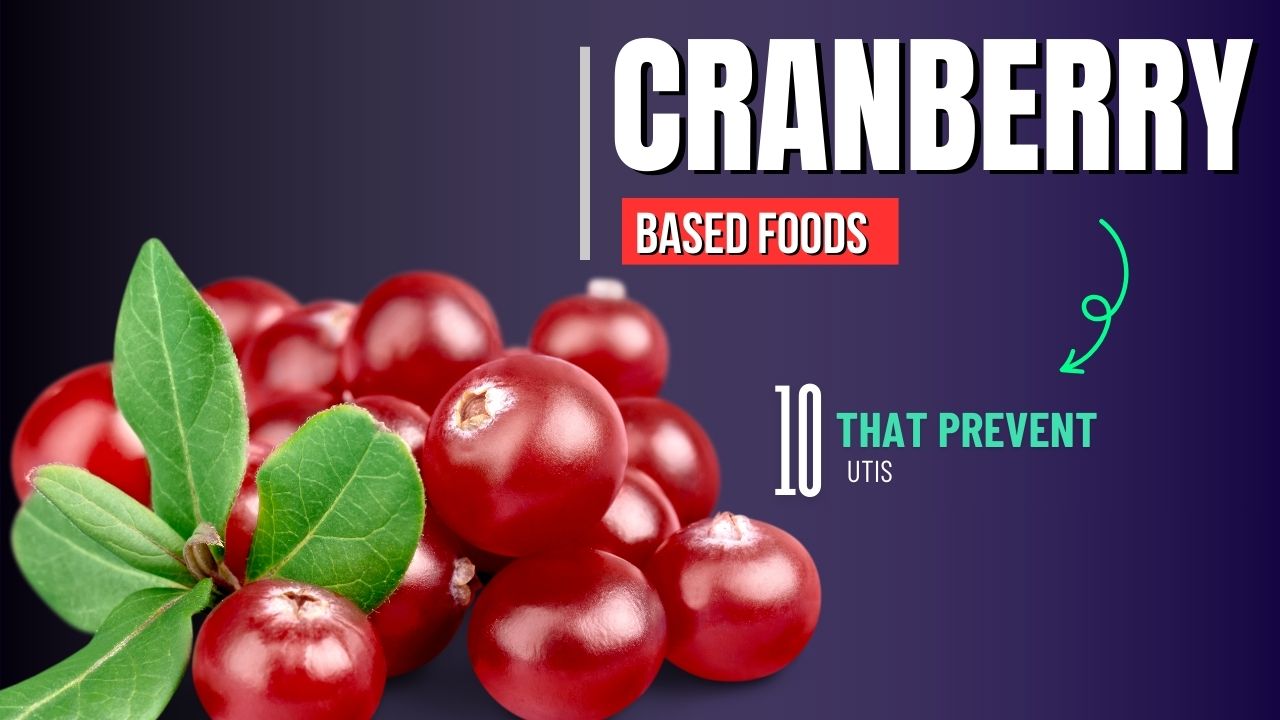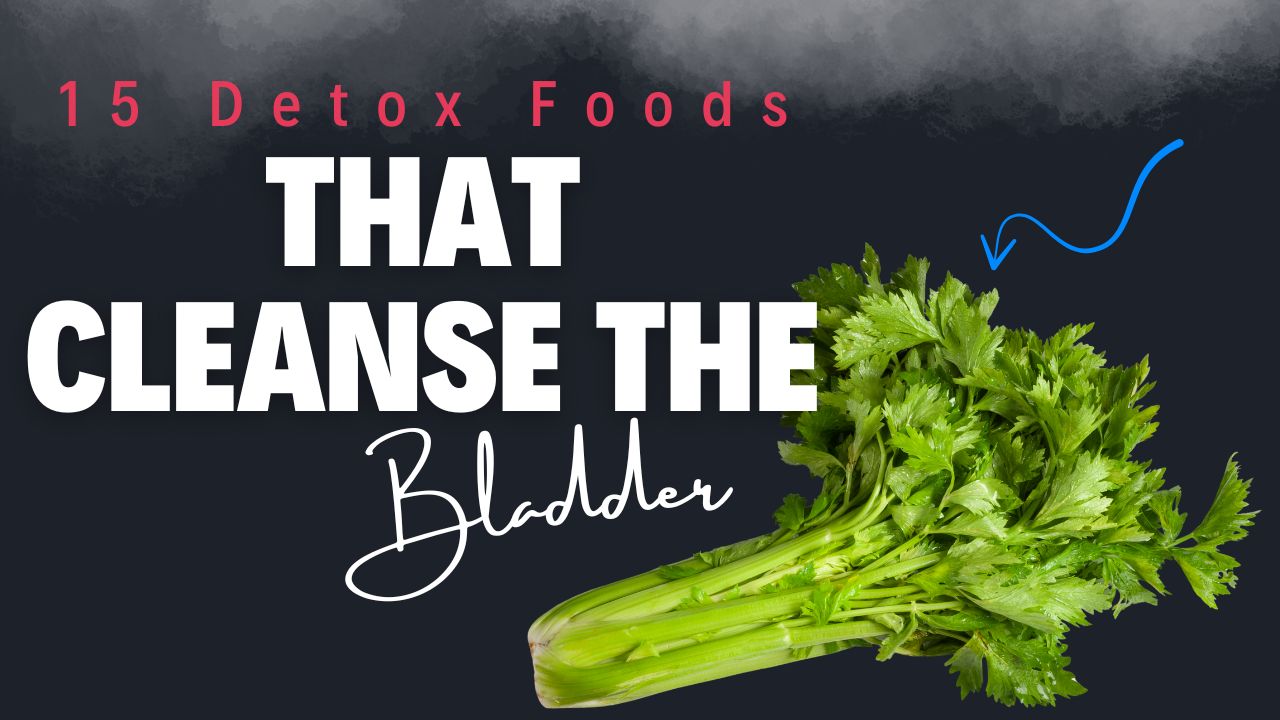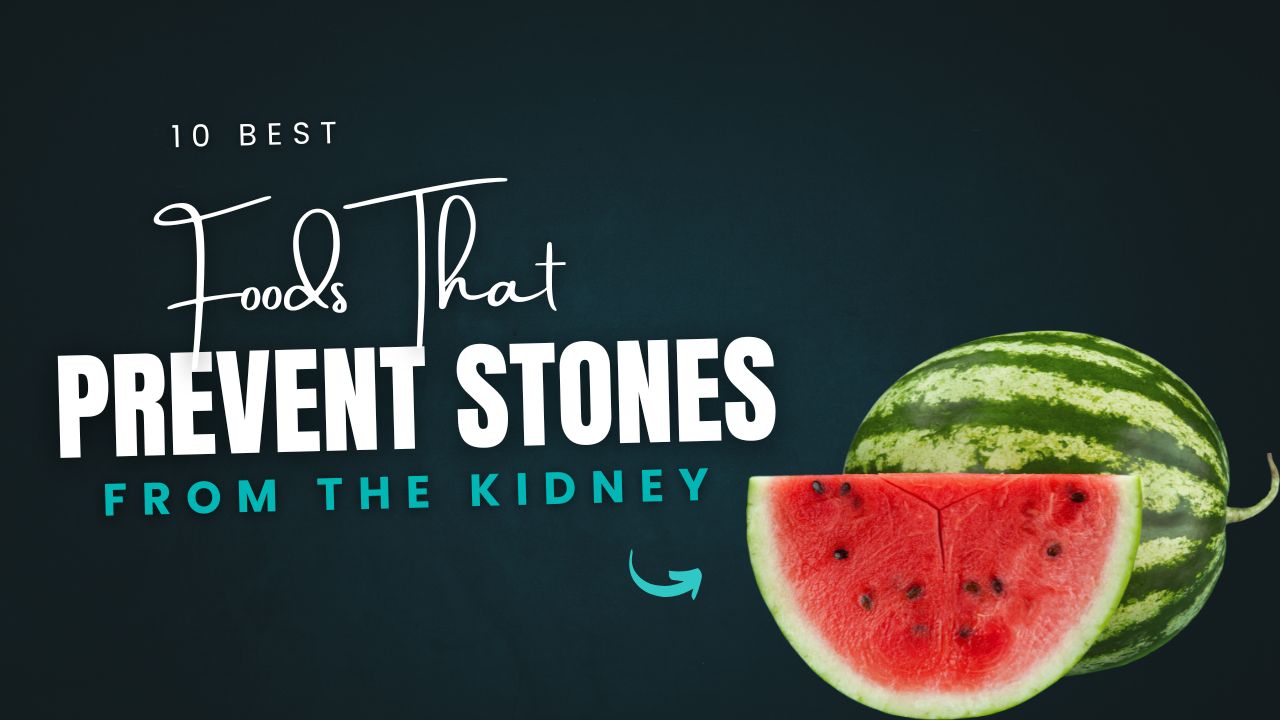Did you know that nearly 70% of your immune system lives in your lymphatic system? This intricate network of vessels, nodes, and organs doesn’t just filter toxins—it’s the hidden guardian that keeps infections, inflammation, and chronic fatigue at bay.
Yet, most people don’t realize that what you eat directly impacts how efficiently your lymph system and immune defenses work together.
If you often feel sluggish, get sick easily, or struggle with water retention, your lymph-immune connection might be compromised.
The good news? The right foods can supercharge this partnership, helping your body flush toxins, fight infections, and restore balance naturally.
In this article, we’ll uncover 15 powerful foods that strengthen the lymph-immune connection, along with tips on:
- The best ways to eat or use each food
- Who benefits the most (and who should avoid it)
- Storage and buying tips for maximum freshness
- Quick “Do’s & Don’ts” tables for easy reference
- Possible side effects you should be aware of
By the end, you’ll have a practical food toolkit to keep your immune system strong and your lymphatic system flowing smoothly.

Table of Contents

15 Foods To Strengthen Lymph-Immune Connection
1. Garlic
Best Ways to Eat or Use It
- Fresh and raw for maximum allicin content
- Lightly sautéed in olive oil
- Added to soups, stir-fries, or dressings
Who Should Eat / Avoid
- Good for: Those prone to frequent infections, people with sluggish circulation
- Avoid if: You’re on blood-thinning medication or have garlic allergies
Storage & Buying Tips
- Choose firm bulbs with dry skins
- Store in a cool, dry place (not the fridge)
Do’s & Don’ts
✅ Do: Crush garlic and let it sit 10 minutes before cooking to release allicin
❌ Don’t: Burn garlic—it destroys immune compounds
Possible Side Effects
- Excess garlic may cause digestive upset or bad breath
2. Ginger
Best Ways to Eat or Use It
- Fresh ginger tea for detox support
- Grated into smoothies or stir-fries
- Combined with honey for sore throat relief
Who Should Eat / Avoid
- Good for: People with inflammation or poor digestion
- Avoid if: You’re prone to gallstones or on blood thinners
Storage & Buying Tips
- Buy fresh, firm roots with smooth skin
- Refrigerate wrapped in a paper towel for longer life
Do’s & Don’ts
✅ Do: Use fresh over powdered for maximum potency
❌ Don’t: Consume in excess if you have stomach ulcers
Possible Side Effects
- May cause heartburn if eaten in large amounts
3. Leafy Greens (Spinach, Kale, Swiss Chard)
Best Ways to Eat or Use It
- Raw in salads
- Lightly steamed or sautéed to retain antioxidants
- Blended into green smoothies
Who Should Eat / Avoid
- Good for: Athletes, women needing iron, anyone seeking detox support
- Avoid if: You have kidney stones (oxalates can worsen the condition)
Storage & Buying Tips
- Pick crisp, vibrant leaves without wilting
- Store in airtight bags with paper towel to absorb moisture
Do’s & Don’ts
✅ Do: Pair with vitamin C-rich foods (like lemon) for better iron absorption
❌ Don’t: Overcook, as nutrients degrade
Possible Side Effects
- Excess may cause bloating or kidney stone risk
4. Turmeric
Best Ways to Eat or Use It
- Golden milk or turmeric tea
- Curry dishes and soups
- Add black pepper to enhance curcumin absorption
Who Should Eat / Avoid
- Good for: Those with inflammation, joint pain, or sluggish immunity
- Avoid if: You have gallbladder issues or are pregnant (in excess)
Storage & Buying Tips
- Buy fresh turmeric root when possible
- Store powder in airtight jars away from sunlight
Do’s & Don’ts
✅ Do: Combine with healthy fats for better absorption
❌ Don’t: Take high-dose supplements without medical advice
Possible Side Effects
- May thin blood or cause stomach upset in large doses
5. Citrus Fruits (Lemon, Orange, Grapefruit)
Best Ways to Eat or Use It
- Fresh juices or infused water
- Zest added to salads or marinades
- Snacking on whole fruit
Who Should Eat / Avoid
- Good for: Immunity boosting, people prone to colds
- Avoid if: You’re on certain medications like statins (grapefruit)
Storage & Buying Tips
- Choose heavy, firm fruits with smooth skin
- Store at room temperature or refrigerate for longer life
Do’s & Don’ts
✅ Do: Drink fresh juice within minutes for max vitamin C
❌ Don’t: Rely only on juice—fiber from whole fruit is key
Possible Side Effects
- Too much citrus may erode tooth enamel
6. Green Tea
Best Ways to Eat or Use It
- Freshly brewed (avoid bottled varieties with added sugar)
- Cold-brewed for a refreshing detox drink
Who Should Eat / Avoid
- Good for: People needing antioxidants and lymph flow support
- Avoid if: Sensitive to caffeine or pregnant (limit intake)
Storage & Buying Tips
- Buy loose-leaf for higher quality
- Store in airtight container away from light and moisture
Do’s & Don’ts
✅ Do: Brew for 2–3 minutes only to avoid bitterness
❌ Don’t: Add too much sugar
Possible Side Effects
- Overconsumption may cause insomnia or upset stomach
7. Berries (Blueberries, Strawberries, Raspberries)
Best Ways to Eat or Use It
- Fresh in yogurt or smoothies
- Frozen berries for year-round use
- Added to salads or desserts
Who Should Eat / Avoid
- Good for: Skin health, immune defense, athletes
- Avoid if: You have berry allergies
Storage & Buying Tips
- Choose bright, firm berries with no mold
- Store unwashed in fridge and wash before use
Do’s & Don’ts
✅ Do: Freeze extras to preserve nutrients
❌ Don’t: Leave at room temperature too long
Possible Side Effects
- Overeating may cause stomach upset
8. Pumpkin Seeds
Best Ways to Eat or Use It
- Raw or roasted snacks
- Sprinkled over salads, soups, or oatmeal
Who Should Eat / Avoid
- Good for: Men’s prostate health, women’s hormone balance
- Avoid if: Allergic to seeds
Storage & Buying Tips
- Buy unsalted, raw seeds for best nutrition
- Store in airtight container in fridge
Do’s & Don’ts
✅ Do: Pair with vitamin C foods for better zinc absorption
❌ Don’t: Over-roast at high heat
Possible Side Effects
- Excess may cause stomach upset
9. Beets
Best Ways to Eat or Use It
- Roasted, juiced, or grated raw in salads
- Blended in smoothies with carrot or apple
Who Should Eat / Avoid
- Good for: Circulation, detox, athletes
- Avoid if: You have kidney stones or low blood pressure
Storage & Buying Tips
- Select firm, small-to-medium beets
- Store in fridge with tops removed
Do’s & Don’ts
✅ Do: Eat with greens (they’re nutrient-rich)
❌ Don’t: Throw away beet greens—they’re edible
Possible Side Effects
- May cause “beeturia” (red urine)
10. Broccoli
Best Ways to Eat or Use It
- Lightly steamed to preserve sulforaphane
- Added to stir-fries or soups
Who Should Eat / Avoid
- Good for: Cancer prevention, immune boosting
- Avoid if: You have thyroid issues (excess raw broccoli)
Storage & Buying Tips
- Pick tightly packed florets with bright green color
- Store in fridge up to 5 days
Do’s & Don’ts
✅ Do: Steam lightly for maximum benefit
❌ Don’t: Overboil, which destroys nutrients
Possible Side Effects
- May cause gas in sensitive individuals
11. Pomegranates
Best Ways to Eat or Use It
- Fresh arils as snacks
- Juice (without added sugar)
- Sprinkled over salads
Who Should Eat / Avoid
- Good for: Heart health, immunity, skin glow
- Avoid if: On blood pressure medications (consult doctor)
Storage & Buying Tips
- Choose heavy fruits with firm skin
- Refrigerate seeds in airtight containers
Do’s & Don’ts
✅ Do: Eat seeds along with juice for fiber
❌ Don’t: Consume bottled versions with added sugar
Possible Side Effects
- May interact with some medications
12. Almonds
Best Ways to Eat or Use It
- Raw or soaked overnight
- Almond butter as a healthy spread
Who Should Eat / Avoid
- Good for: Weight management, energy boost
- Avoid if: Nut allergies or kidney issues
Storage & Buying Tips
- Store raw almonds in airtight containers
- Refrigerate for longer freshness
Do’s & Don’ts
✅ Do: Eat with fruit for balanced snack
❌ Don’t: Overconsume (high calories)
Possible Side Effects
- May cause digestive issues if overeaten
13. Seaweed
Best Ways to Eat or Use It
- Added to soups, sushi, or salads
- As seaweed snacks
Who Should Eat / Avoid
- Good for: Thyroid support, detox
- Avoid if: Thyroid disorders (too much iodine)
Storage & Buying Tips
- Buy organic, non-processed varieties
- Store in airtight container
Do’s & Don’ts
✅ Do: Use small amounts for mineral boost
❌ Don’t: Overconsume—iodine excess can harm thyroid
Possible Side Effects
- High iodine may cause thyroid imbalance
14. Papaya
Best Ways to Eat or Use It
- Fresh slices, smoothies, or fruit salads
- Papaya enzyme supplements for digestion
Who Should Eat / Avoid
- Good for: Digestive support, skin health
- Avoid if: Pregnant (unripe papaya may cause issues)
Storage & Buying Tips
- Pick slightly soft, yellow-orange papayas
- Store ripe ones in fridge
Do’s & Don’ts
✅ Do: Eat with lime juice for added vitamin C
❌ Don’t: Eat unripe if pregnant
Possible Side Effects
- May cause latex allergy in sensitive people
15. Mushrooms (Shiitake, Reishi, Maitake)
Best Ways to Eat or Use It
- Stir-fried, grilled, or added to soups
- Mushroom teas or extracts for immune support
Who Should Eat / Avoid
- Good for: Immunity, cancer prevention
- Avoid if: Allergic to fungi
Storage & Buying Tips
- Choose firm mushrooms without dark spots
- Store in paper bags in fridge
Do’s & Don’ts
✅ Do: Cook mushrooms to unlock nutrients
❌ Don’t: Store in plastic bags (causes spoilage)
Possible Side Effects
- Excess may cause stomach upset
Conclusion
Your lymphatic system is the silent hero of your immunity, working tirelessly to remove waste, circulate infection-fighting cells, and keep your body in balance.
By adding these 15 nutrient-rich foods—from garlic and ginger to mushrooms and papaya—you give both your lymph and immune systems the nourishment they need to thrive.
Start small: add garlic to your next stir-fry, sip on green tea instead of soda, or top your salad with pumpkin seeds. Over time, these small, consistent choices will create a powerful shield of resilience against infections, fatigue, and inflammation.
What about you—which of these immune-lymph boosting foods do you already enjoy, and which one will you try next? Share your favorite recipe or tip in the comments below!
Frequently Asked Questions (FAQs)
What is the lymph-immune connection?
The lymphatic system and the immune system work closely together. The lymphatic system filters toxins, removes waste, and carries immune cells, while the immune system protects against infections. Together, they form the body’s defense and detox partnership.
How do foods strengthen the lymphatic and immune systems?
Certain foods contain antioxidants, vitamins, minerals, and phytonutrients that reduce inflammation, boost white blood cell activity, and improve lymph circulation. This helps the body fight infections more effectively and detoxify naturally.
Which foods are best for cleansing the lymphatic system?
Garlic, ginger, leafy greens, beets, and citrus fruits are among the best foods for cleansing and improving lymphatic flow. They help flush out toxins and stimulate circulation.
Can diet really improve immunity?
Yes. A nutrient-rich diet filled with vitamin C, zinc, antioxidants, and anti-inflammatory compounds strengthens immunity. Foods like berries, mushrooms, pumpkin seeds, and green tea are proven to boost immune function.
How quickly can I notice benefits from eating these foods?
While there’s no instant fix, consistently eating these foods can improve energy, immunity, and detoxification within weeks. Long-term benefits include fewer infections and better overall health.
Are supplements as effective as whole foods for lymph and immune health?
Whole foods provide a wide range of nutrients and fiber that supplements can’t fully replicate. Supplements may help if you have deficiencies, but a food-first approach is more effective for long-term lymph-immune health.
Can drinking water improve the lymphatic system too?
Yes. Staying hydrated is essential for keeping lymph fluid flowing freely. Pairing hydration with foods like cucumber, citrus, and watermelon can further support lymph health.
Is exercise important along with diet for lymphatic health?
Absolutely. The lymphatic system doesn’t have a pump like the heart, so movement is necessary. Combining exercise (like walking, yoga, or rebounding) with these foods gives the best results.
What’s the single best food for boosting the lymph-immune connection?
There isn’t one “magic food,” but garlic, citrus fruits, and leafy greens are among the most powerful. Eating a balanced mix of all 15 foods listed will bring the strongest overall benefits.










